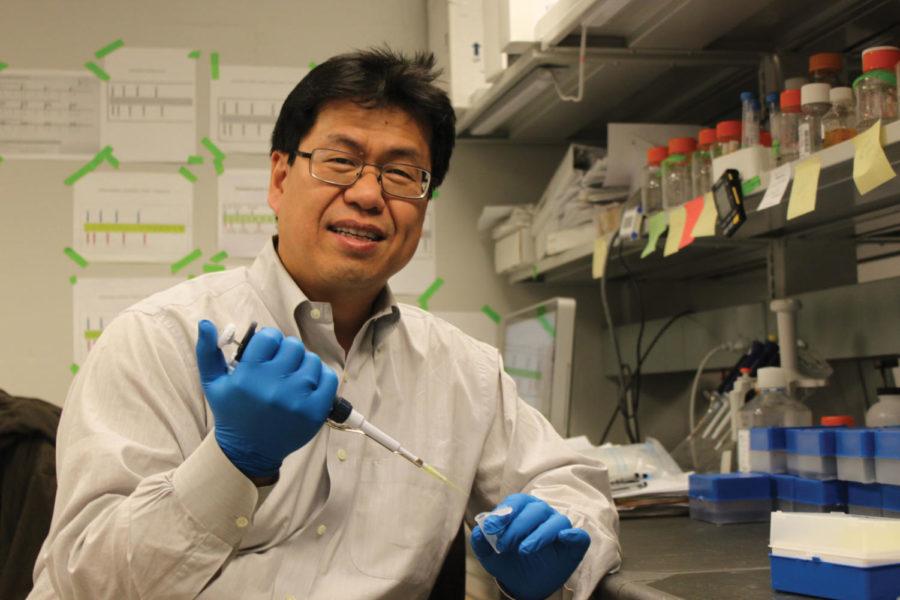Iowa State enhances training efforts on research ethics
Photo: Lyn Bryant/Iowa State Daily
Michael Cho continues conducting research for the development of an AIDS vaccine and vaccine delivery at Iowa State.
July 2, 2015
The time frame for how long it will take Iowa State to recover from the case of scientific fraud by former ISU researcher Dong-Pyou Han is unknown.
The university has, however, begun its own efforts in improving the training on how research must be conducted for graduate students, postdoctoral students and researchers at Iowa State.
When Han admitted to faking results of experiments with an AIDS vaccine, it affected the lives of a number of researchers who were involved.
“This was a serious case of research misconduct,” said university spokesman John McCarroll. “It affected the progress of an important scientific quest, which is to find a vaccine to deal with HIV and to find an effective delivery system for that vaccine.”
McCarroll said the manipulation related to the research results was first uncovered in early 2013. ISU researchers collaborated with researchers at other universities, and at least one of those universities noticed what it believed was troubling data.
Iowa State was notified, confirmed the misconduct and reported it to the National Institutes of Health, which was the primary funding agency for much of the research.
An investigation followed, and Han was notified of the findings in the summer of 2013. He admitted to the research fraud and resigned from Iowa State in October 2013.
On Wednesday, Han was sentenced to 57 months in prison.
Michael Cho, director of the research team and Han’s former mentor, declined to comment on the situation.
“When the Han issue came to light, one of the first actions taken by Iowa State’s Office of the Vice President for Research was to conduct responsible research training for all staff in Cho’s laboratory,” Rob Schweers, director of communications, wrote in an email.
McCarroll said the fraud has resulted in a lot of negative coverage for the research effort, and a reminder of the need to continually reinforce the message of research education.
“I know the efforts that are made by the vice president for research to train the graduate students, the postdoctoral students and the researchers themselves on some key areas to how research is conducted,” McCarroll said. “The ethics involved — what is research misconduct? Those training efforts have been enhanced as a result of this case.”
Schweers wrote that the Office of the Vice President for Research provides numerous educational materials for investigators, including “The Lab”, an interactive video that examines the difficult decisions people face when research misconduct is suspected.
A full list of the educational materials can be found at http://www.policy.iastate.edu/policy/research/misconduct
“Iowa State has also reviewed policies related to purchasing, expenses and documentation, and provided additional training to help faculty and staff prevent errors in compliance with federal guidelines,” Schweers wrote. “This includes conflict of interest and commitment (COIC) disclosures completed annually by all faculty, professional and scientific staff, postdocs and graduate assistants.”
Schweers wrote that it is important to remember that this case involved a researcher acting dishonestly. It was not a breakdown in policy.
Cho continues to conduct research — development of vaccines and vaccine delivery. McCarroll said Cho’s currently working with one NIH grant and he’s made applications for other NIH grants.
“I don’t think there’s any doubt it’s had an impact on this research and it may take some years to fully recover from that. We simply don’t know,” McCarroll said.

















